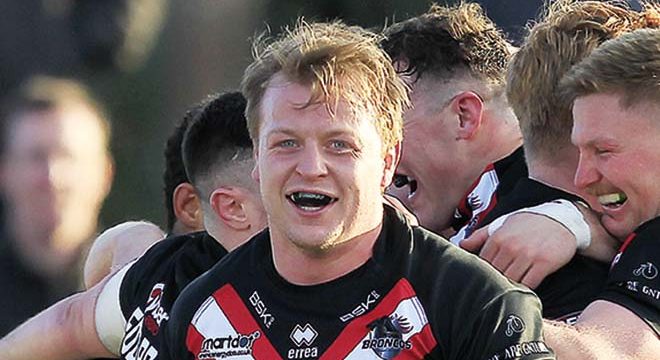 1. Eddie Battye was a buffalo farmer.
Battye was like a bull in a china shop in causing damage to Super League defences upon London Broncos’ one-season return to Super League in 2019. He carved the unlikely path from buffalo farmer to cult legend, in doing so, after growing up on a farm in Penistone, near Barnsley. His parents used to be dairy
1. Eddie Battye was a buffalo farmer.
Battye was like a bull in a china shop in causing damage to Super League defences upon London Broncos’ one-season return to Super League in 2019. He carved the unlikely path from buffalo farmer to cult legend, in doing so, after growing up on a farm in Penistone, near Barnsley. His parents used to be dairy The Self-Isolation Chronicles: London Broncos
 1. Eddie Battye was a buffalo farmer.
Battye was like a bull in a china shop in causing damage to Super League defences upon London Broncos’ one-season return to Super League in 2019. He carved the unlikely path from buffalo farmer to cult legend, in doing so, after growing up on a farm in Penistone, near Barnsley. His parents used to be dairy
1. Eddie Battye was a buffalo farmer.
Battye was like a bull in a china shop in causing damage to Super League defences upon London Broncos’ one-season return to Super League in 2019. He carved the unlikely path from buffalo farmer to cult legend, in doing so, after growing up on a farm in Penistone, near Barnsley. His parents used to be dairy 